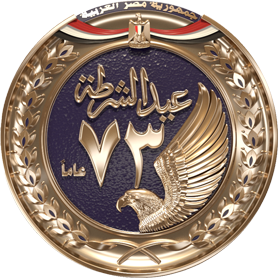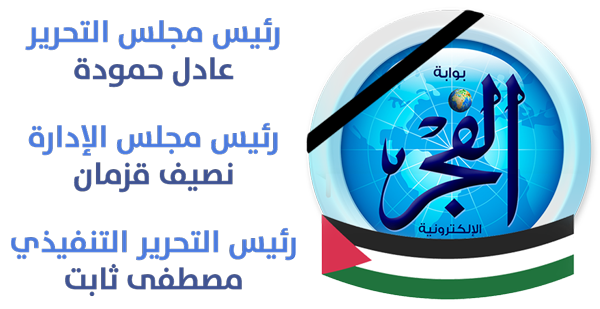Ahmed Abdelwahab Writes: Arabic for all

"A Proposed initiative to empower the Arabic language among non- native speakers in Arab societies"
My experience in teaching Arabic to non-native speakers began 17 years ago at one of the distinguished German schools in Cairo.
Then I moved on to teach in the United Arab Emirates، a country that is known for its high-quality education and the interest in the Arabic language in particular، as all Arab and even non-Arab students learn Arabic as compulsory subject in school.
It is no secret that one of the factors for the success of learning and acquiring any language in the world is to use the language in daily life outside the classroom. Therefore، the progress of students learning Arabic as non-native speakers in Cairo (where Arabic is the language of daily life) was higher than in Dubai، where the use of the English language is more prevalent in daily life due to the high amount of foreigners (trade and tourism). This increases our responsibility to develop initiatives to promote the spread of the Arabic language among non-native speakers.
Initiative: Arabic for All
Because I know that the United Arab Emirates is a country that is keen on developing and empowering the Arabic language through adopting and launching initiatives that enrich the value of the Arabic language، I present in the following lines the initiative
"Arabic for All" that would improve the learning and empowerment of the Arabic language among non-Arabic speakers in the community، along with outlining the steps for implementing the initiative.
The Initiative Idea:
"Teaching Arabic to all non-Arabic speakers، not just students، with increased incentives for spreading and using the Arabic language in daily life."
The Initiative Story:
The idea of the initiative came to my mind when a non-Arabic speaking student asked me years ago during an Arabic language class: "Teacher، why do I learn Arabic at school?"
My response motivated him by discussing the advantages and benefits of learning the Arabic language in our current era، and I mentioned another important reason، which is that we live in an Arabic country. The student understood the answer، but he added، questioning:
"If that's the case، why don't my parents learn Arabic like me? Don't we all live in the same Arabic country? They can benefit from the advantages of this beautiful language just like me. Moreover، they can speak to me in Arabic and help me if needed. I don't have anyone to speak Arabic at home."
I saw this as an opportunity to increase the student's motivation to continue learning by saying: "You are right، my dear. It would be wonderful for them to learn the Arabic language، and this is your chance to teach your parents because they didn't have the opportunity to learn Arabic at school like you do now.
Since that day، the idea of teaching the Arabic language on a larger scale to include all non-native speakers has never left my mind، on a compulsory basis but in an attractive and motivating manner. I have been discussing the idea for nearly a year with the brilliant television host Zeinab Al Matroushi on Al Fujairah TV. The idea was also proposed by some distinguished Arabic language specialists interested in empowering the Arabic language in society and developing the level of student achievement such as Dr. Hanada Taha and others.
Gains of the Initiative:
In an international city like Dubai، where there are people from almost all nationalities and languages، it is natural for them to have a common global language for quick business communication، which is the English language. I am certain that the UAE government always seeks to provide innovative solutions and initiatives to empower the Arabic language and to establish its presence in daily life. I believe that this initiative is a good step towards achieving several gains - as the saying goes، killing two birds with one stone.
1. Foreigners learning the language of the country they are living in will create an Arabic-speaking environment in daily life outside
the classrooms.
2. It will increase the understanding of the Arab culture by non-Arabic speakers because language is the vessel of culture، and understanding others' culture is a means of interaction، communication، and integration within society.
3. It will increase the motivation of foreign students to learn the Arabic language both inside and outside schools، as it would become a part of their language at home، where their parents would learn it just like them، and، of course، their neighbors and the
surrounding community.
4. The initiative represents a soft power (economically and diplomatically)، and anyone involved in politics and economics recognizes that learning the language and culture of others increases their economic and diplomatically power. Therefore، Germany requires anyone who wants to study or work there to learn the German language. Germany also strives to provide thousands of opportunities and scholarships for learning German for non-native speakers. This is not a waste of German public money، but rather a dissemination of their culture and the addition of soft political power to their foreign policy. Those who are well acquainted with strategy know that Germany has reaped the benefits of this initiative in recent years by attracting talented individuals who have learned the German language to fill professional gaps in various fields such as medicine، nursing، engineering، teaching، etc.
Therefore، learning the Arabic language for all non- native speakers، not just students، will create an Arabic speaking environment that has many short- and long-term benefits.
Implementation Mechanisms of the Initiative:
1. Government support
Implementing this initiative requires government support not only at the level of the United Arab Emirates but at the level of all Arab governments.
2. Support from companies and employers
It is essential for companies and employers to collaborate for the success of this initiative by allowing their foreign employees to participate in Arabic language education programs، taking into account the designated time for learning from official working hours so that learning does not become burdensome for the learners. For example، if the weekly working hours are 40 hours، two hours per week can be allocated for learning the Arabic language and its culture.
3. Learning location and time
Where and when will all these residing immigrants learn? The answer is not difficult. The UAE and many Arab countries already have modern and advanced schools and universities that can accommodate all these numbers. It is possible to use school and university classrooms either at the end of the school day or during weekends for teaching، or through distance learning، especially since the world has gained effective and successful experience in distance learning. Alternatively، there may be initiatives to transfer learning locations near workplaces for facilitation and convenience.
4. Educational program
Choosing educational programs to learn Arabic for adults. These programs already exist and are widespread، and considerable efforts are being made in this regard. The only remaining task is to generalize the experience to include everyone while taking into account the necessity of qualifying teachers on the proposed educational program.
5. Educational cadres
Arabic language teachers for non-native speakers in different schools and Arabic learning centers.
Secondly: creating a motivating environment for practicing the Arabic language in daily life:
Then comes the second part of the initiative، which is creating a motivating environment for practicing the Arabic language in daily life:
1. For example، offering promotions and discounts on purchases and in restaurants when using the Arabic language to buy certain products.
2. Incentive competitions، not only for students but also for parents and all immigrants، such as the best video in the Arabic language and competitions for foreign songs، expanding the circle of winners.
3. Media coverage of the event، which is also a very important point and will activate the tourism sector within the country.
4.Incentive rewards within the workplace with each progress in learning the Arabic language.
Learning the Arabic language and its spread is not only important for reasons related to Arab identity، but it also has economic، and diplomatic dimensions.
On the occasion of the International Day of the Arabic Language، I extend my thanks to everyone who contributes to the development and progress of the Arabic language through words، actions، or both. I hope that my voice will be heard and that this initiative will be implemented for the benefit of the country and the Arabic language.
Contact the author:
Ahmed Abdelwahab









